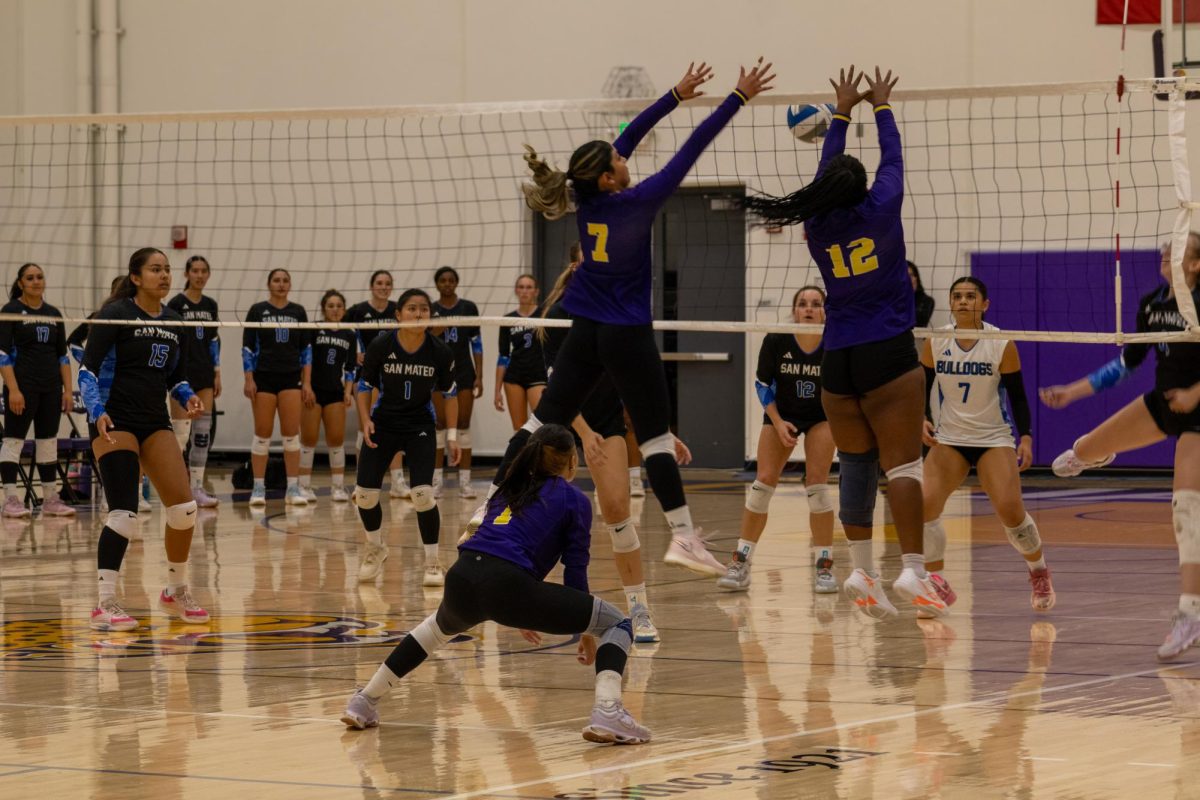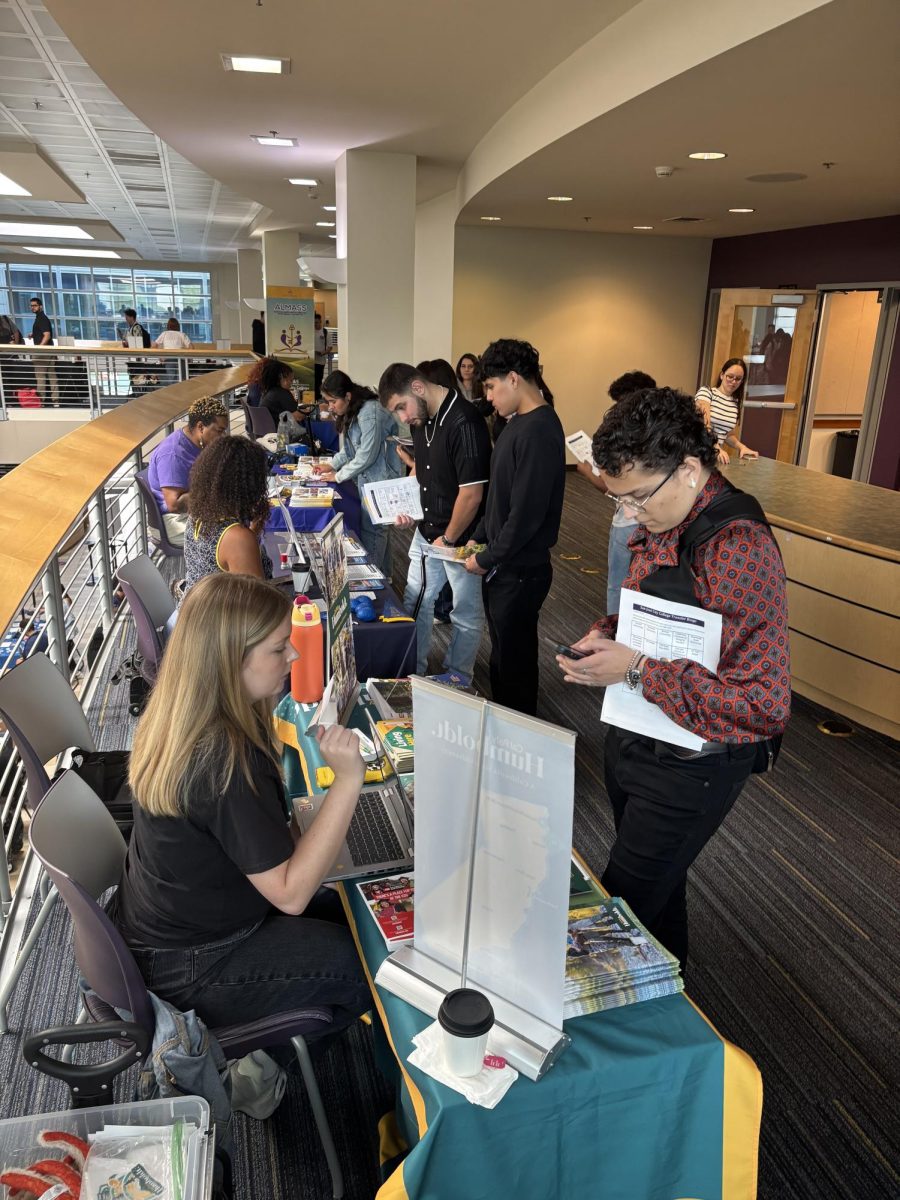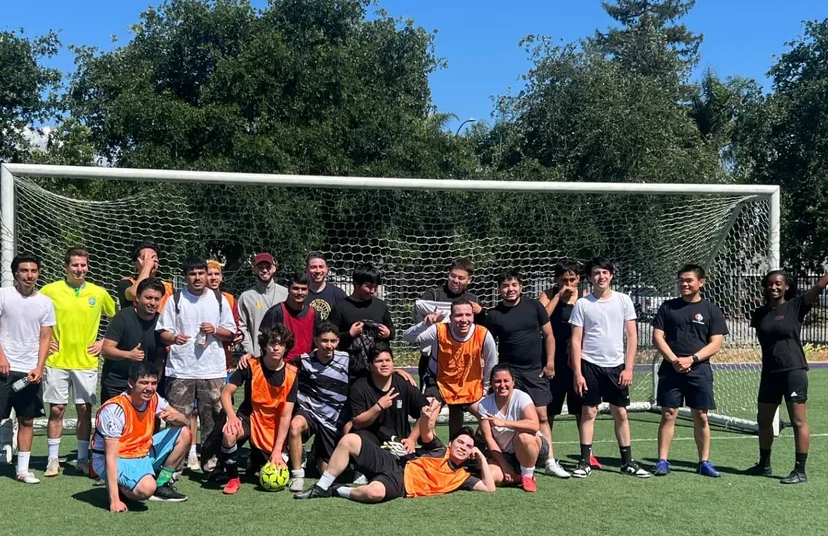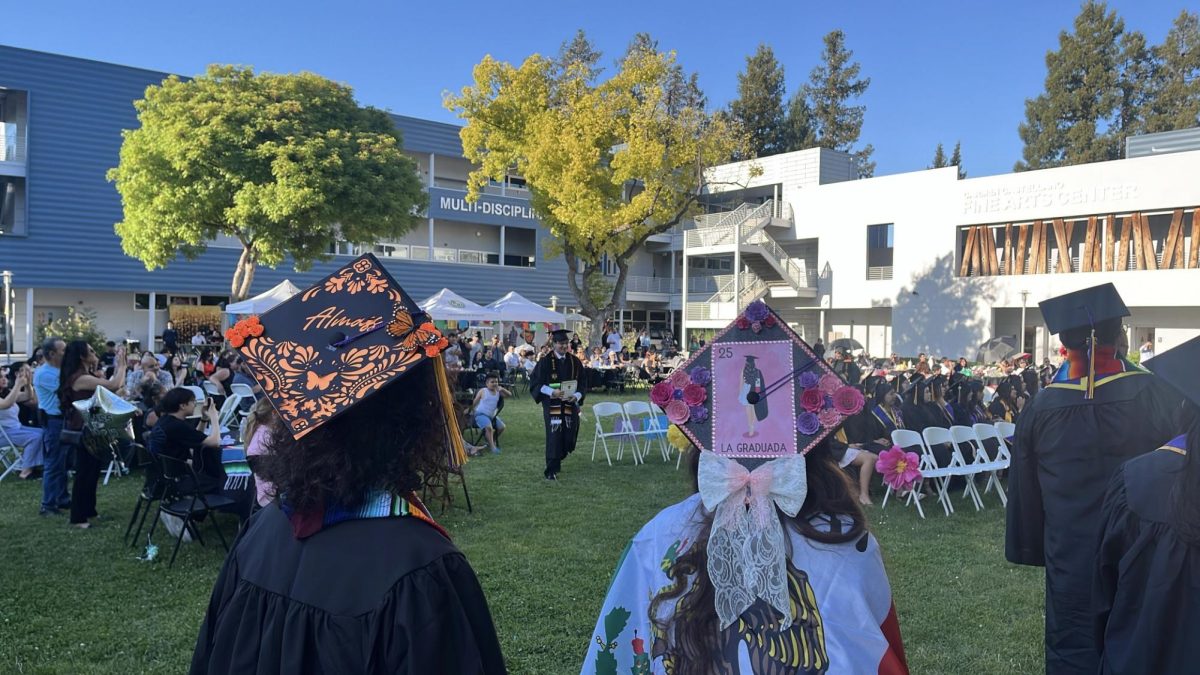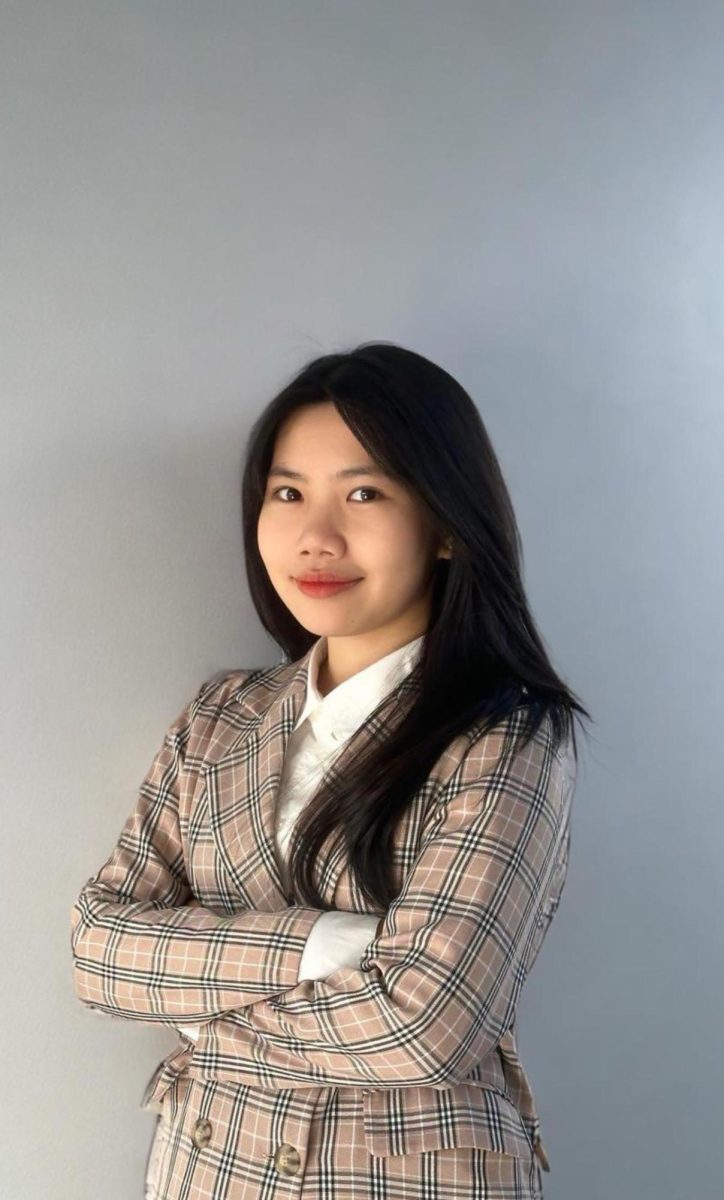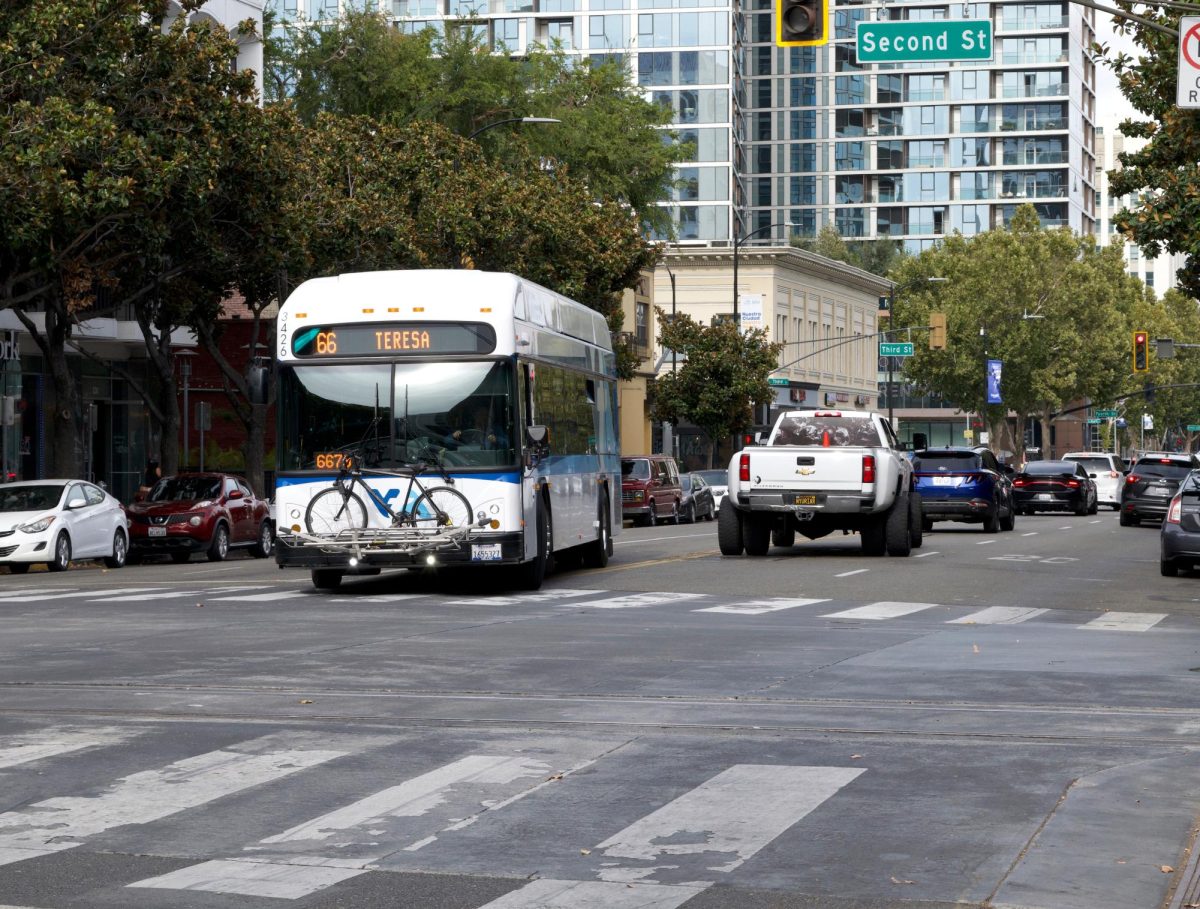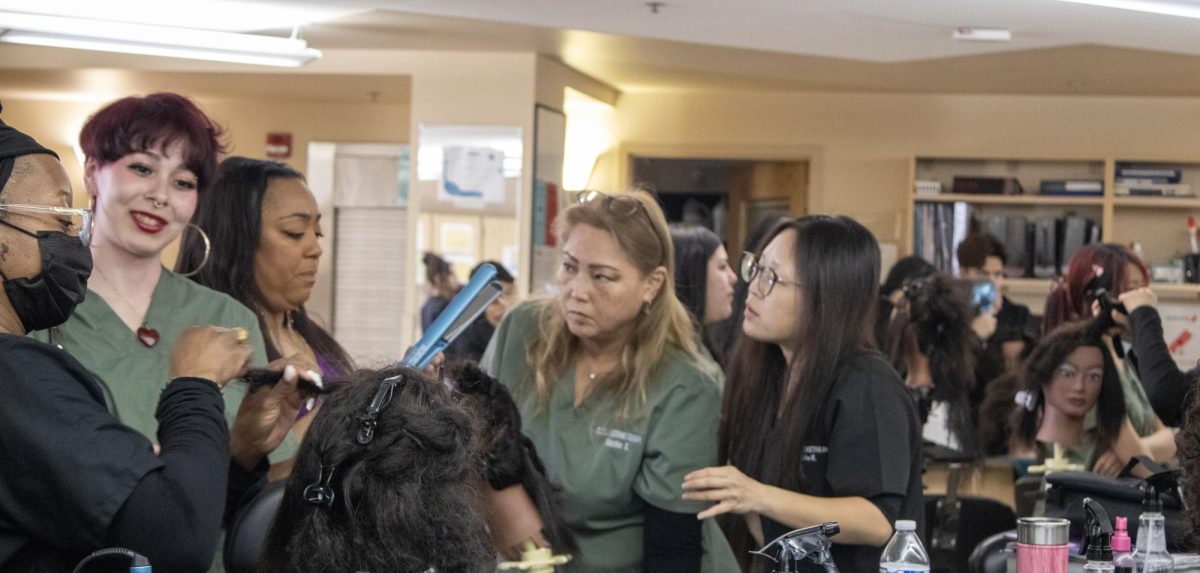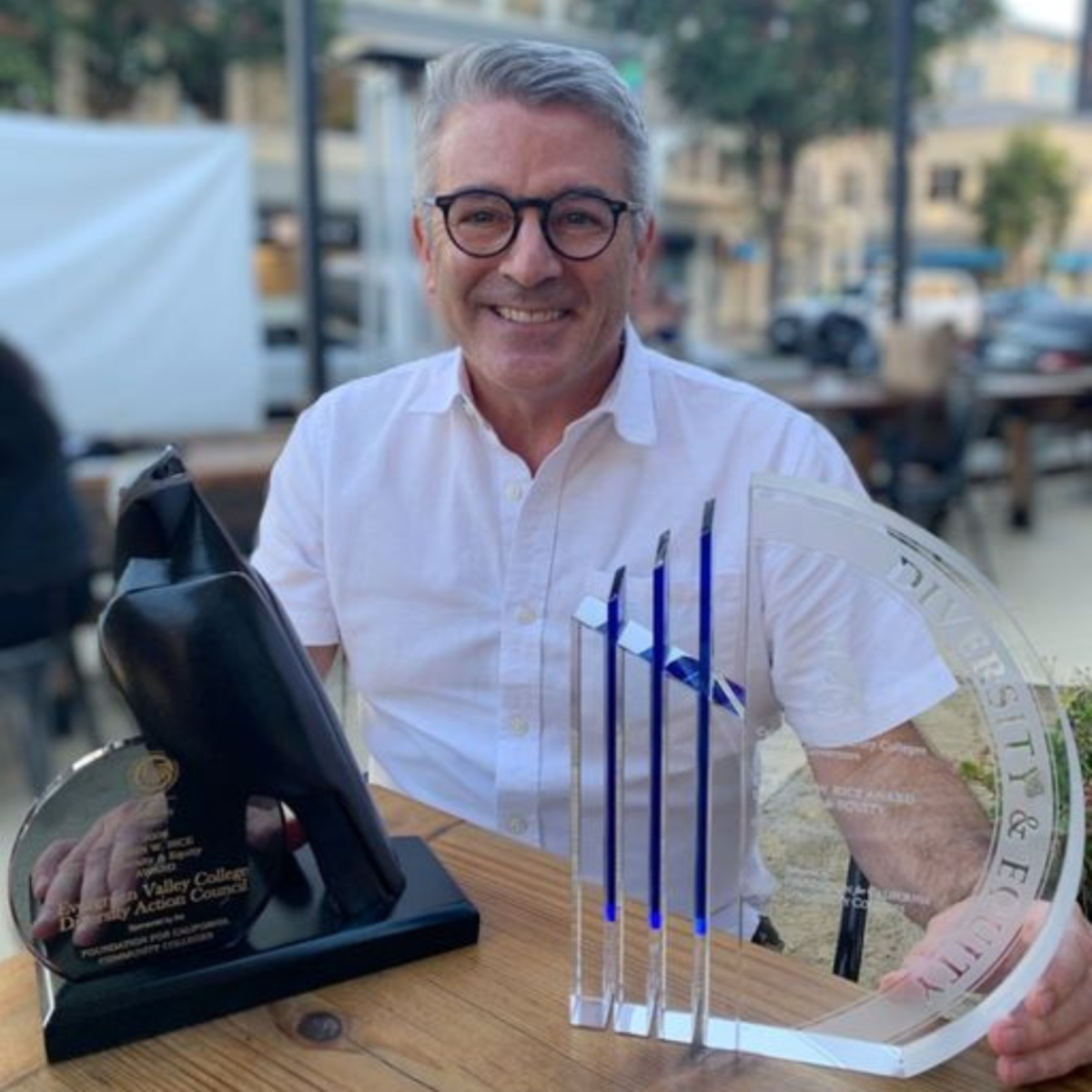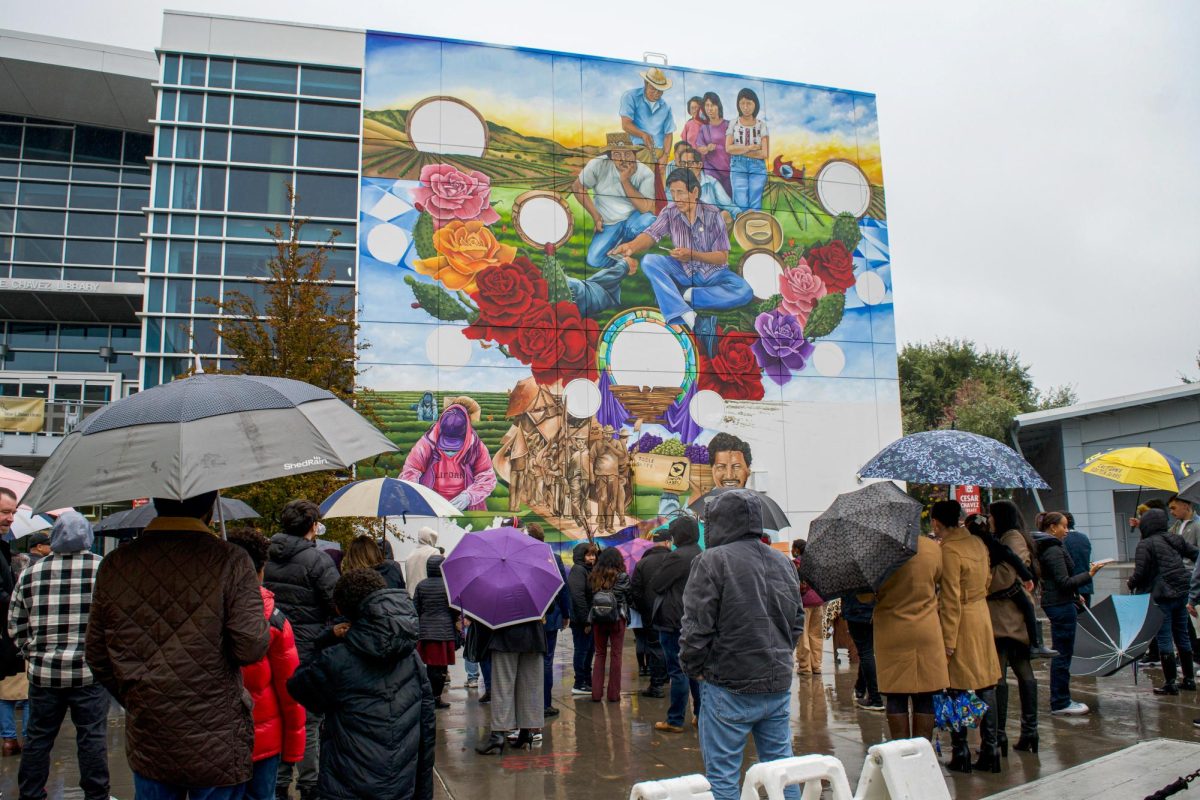Veterans will have a place to call their own at San Jose City College after March 12 when the new Veterans Resource Center will start operating the Student Center.
Mic Taylor, vice president of the Veteran’s Resource Center executive board and senator to the Associated Student government, said the grand opening will take place at 2 p.m. in the Student Center.
The opening will have speeches from Elaine Burns, vice president of student affairs, and Sophia Partida, veteran’s coordinator. Gary Ledesma, a counselor who works with veterans at SJCC, will also be speaking.
This project was aided by Stephen Mansfield, who is a veteran.
The new center is located in the Student Center, room 215, next to the elevator. The exterior is painted in a green camouflage pattern.
Taylor said that the school was instrumental with the acquisition of furniture and painting.
The center has computers for veterans to use, providing internet access to those who do not have a computer or cannot access the internet from home.
The new VRC is open to all students, but its primary goal is to aid veterans with achieving success in the education system.
The center’s executives intend to foster a community devoted to mentoring veterans and providing a place where there are others with similar experience in the military.
“Our charter is ready to assist veterans to be successful in negotiating and navigating the education process,” Taylor said, “seeing that they are successful and that they graduate.”
The center also has a code of conduct and is in the process of developing standard operating procedures as guidelines for the VRC and future officers.
“The executive board members need to ensure a legacy where we are mentoring other people,” Taylor said.
He said there were previous attempts at opening a VRC on campus 10 to 15 years ago.
“We don’t know much about what they were doing or who they were, but the current executive board wants to work in such a way that the VRC is an ongoing effort and a dedicated location for the veterans going off into the future,” Taylor said.
He also mentioned the idea of forming a veteran’s foundation with the intention of funding the VRC and possibly offering scholarships for veterans.
These could range from two to four years with the aim of helping veterans transition to four-year schools, which could reinforce student retention.
The VRC had a smaller opening and has seen a steady flow of veterans already.
Taylor mentioned that the VRC is attempting to reach out to local high schools that already have Reserve Officer Training Corps programs in place, and inviting these potential future officers to attend.

